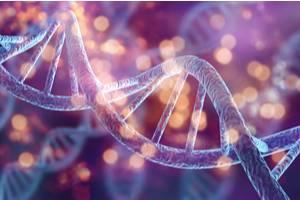 DNA contains a wealth of information about a person, and due to modern technology, this information can be used for a variety of beneficial purposes. Genetic information can provide information about a person’s health and ensure that they receive the proper medical treatments, and it can be used to establish family connections and provide details about a person’s roots. DNA is also playing an increasingly important role in criminal investigations. Unfortunately, many people do not realize how information stored in genetic databases may be used against them or others, and criminal justice advocates are questioning how storing and sharing this data may affect people’s rights.
DNA contains a wealth of information about a person, and due to modern technology, this information can be used for a variety of beneficial purposes. Genetic information can provide information about a person’s health and ensure that they receive the proper medical treatments, and it can be used to establish family connections and provide details about a person’s roots. DNA is also playing an increasingly important role in criminal investigations. Unfortunately, many people do not realize how information stored in genetic databases may be used against them or others, and criminal justice advocates are questioning how storing and sharing this data may affect people’s rights.
Genetic information is being used in more and more criminal cases. Evidence gathered at a crime scene may be compared to DNA information in a variety of genetic databases to identify potential suspects. While this practice has led to some high-profile arrests, such as the identification of the “Golden State Killer,” it has also led privacy advocates to raise concerns.
In many cases, investigators have used data from public databases of genetic information created by genealogy services such as Ancestry or 23andMe. However, many people who submit DNA to these services do not realize that their information may be turned over to law enforcement and used in criminal investigations. Some cases have used genetic data submitted by a suspect’s distant relatives, putting a person’s privacy at risk even if they were never aware that details about their family and their DNA had been made available to others.
While the use of genetic information may have benefits in some cases, criminal justice advocates have raised concerns about whether law enforcement will use this information correctly while respecting people’s rights. Some recent cases have demonstrated that police departments and other law enforcement organizations have engaged in violations of people’s rights, including:
A class-action lawsuit was recently filed against the New York Police Department due to its collection of DNA evidence that was maintained in an unregulated database and used in criminal investigations. The NYPD routinely collected DNA from people who had been arrested or questioned at police stations, and it stored this evidence in a database even in cases where suspects where never charged or convicted of crimes. The lawsuit is seeking to have this database shut down and for all DNA evidence that was obtained unlawfully to be erased.
The San Francisco District Attorney recently announced that the San Francisco Police Department had stored genetic data collected from sexual assault survivors and used this information in criminal investigations. DNA collected from survivors in rape kits after reporting sexual assaults was included in genetic databases used by police to investigate crimes. Victims were not informed that their own DNA information would be stored and used for purposes other than the investigation of the crimes they had reported, and they were not given the opportunity to grant or refuse permission to store their genetic data.
Everyone has rights that should be protected, including those who are charged with criminal offenses. Defendants in criminal cases will often need to determine how to respond to DNA evidence. At Woolf & Ross Law Firm, LLC, we can help determine whether genetic evidence may have been collected or used illegally, and we will fight to protect the rights of defendants and ensure that they are treated fairly throughout the legal process. Contact our Connecticut criminal defense lawyer at 860-290-8690 to discuss these issues in a free consultation and learn more about how we can help defend against criminal charges.
Sources:
https://www.washingtonpost.com/opinions/2022/02/17/rape-survivor-dna-arrest-in-san-francisco/
https://thecrimereport.org/2022/03/22/nypd-sued-over-illegal-and-unregulated-dna-database-of-33000-profiles/
https://www.nytimes.com/2021/12/27/magazine/dna-test-crime-identification-genome.html
 50 Founders Plaza
50 Founders Plaza

